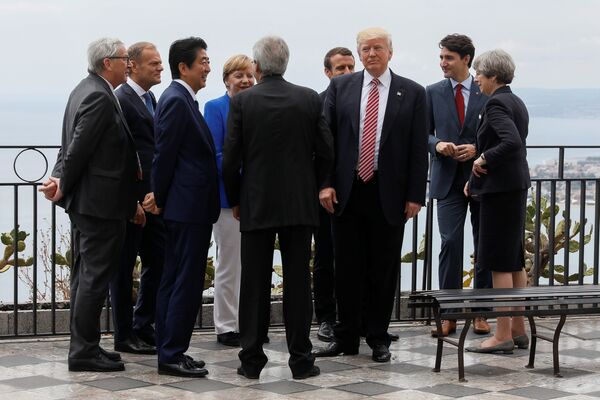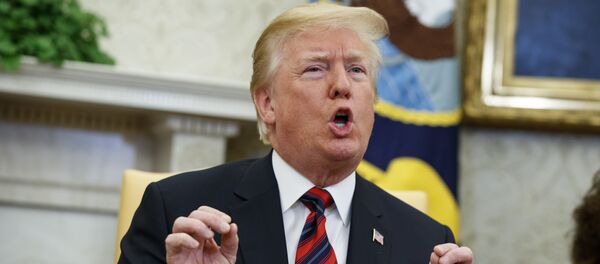Sputnik: The President of the European Commission has vowed an immediate reprisal to President Trump’s tariff move. What retaliatory measures could be taken and what could their extent be?
Simon Lester: What the EU has planned (and I think Canada and Mexico have planned as well) is to impose an equivalent amount of tariffs on US products.
They're going to do it a little bit differently. The US is imposing tariffs just on steel and aluminum. The EU, Canada and Mexico will probably try to target particular sectors in certain areas. So they might look for the [electoral] district of House of Representatives speaker Paul Ryan or Senator Mitch McConnell and try to target products made there in order to try to encourage those members of Congress to speak up to the president and push back in the internal domestic political process.
Sputnik: What's behind this hawkish US behavior toward its traditional allies? Is it just a misguided, nearsighted approach? Is it the idea that they can bully these countries into certain conditions?
Simon Lester: Those are two good reasons. I would say that additional reasons are that some of the people within the Trump administration are just true believers in protectionism. They just think the US is better off with it, that it helps the US steel and aluminum industry, and don't care about the cost to the others. So some of them just ideologically think this is good for us.
Another reason is that a lot of people in the Trump administration have complained about the weakness of our past trade negotiators. They want to be strong, tough trade negotiations and think that this is the way to do it. They think that if you threaten or impose tariffs, other countries will back down. They think this is the way they can get the best trade deal possible. They see the previous trade deals as bad deals, and that this is the way they can get better trade deals.

Sputnik: What is your take on the efficiency of this approach, if we bear in mind the European Union's gradual tilt away from the United States as it is?
Simon Lester: In the long term this doesn't seem very productive. There may be some small differences with the EU; those seem like they can be worked out in other ways. Instead we're aggravating the relationship. Arguably we'd be better off working with the EU on issues such as China's protectionist practices…
I don't want to get too fatalistic about this. These are sort of initial small steps, and we're not talking about a massive amount of trade here; it's still a small amount of trade. But it's a step in the wrong direction, and hopefully we can find a way to pull back before it spirals out of control.

Simon Lester: Clearly American consumers are going to pay the price for it; we've already seen steel prices going up when the initial tariffs were imposed on China, Russia and a few other countries. Now that we're imposing tariffs on Canadian products, which are a huge chunk of steel and aluminum imports, and also the EU and Mexico, I think we'll see those prices go up even more, and see that filter down to products that consumers are actually aware of.
You don't normally go to the store and buy steel beams, but you do buy cars that are made of steel, you buy cans that are made of aluminum. So I think as the prices start to filter down, maybe people will have a better sense of the actual impact of this. And that will cause them to sort of protest against it. It might take a couple months for that all to play out, but hopefully the cost to American consumers will make a difference and play a role in all this.

Sputnik: On a broader scale, besides the tension between the US and the targeted countries, how is this going to affect the multilateral trading system? EU trade commissioner Cecilia Malmstrom and Japan's economy minister Hiroshige Seko have been saying the tariffs could lead to the demise of the multilateral trading system and impact the global economy.
Simon Lester: They could do those things. I'm hopeful that cooler heads prevail and they don't. Often we are able to cabin off trade disputes from the broader system. There are a lot of issues going on right now with the multilateral trading system, and this is one of them. It seems to me that most countries still feel that the trading system works and is beneficial. The US has a number of specific complaints or is going against rules in specific ways. Hopefully that doesn't mean that they withdraw from the World Trade Organization. I don't think things will go that far, but it's certainly a risk, and something we have to be aware of.

The views and opinions expressed by Simon Lester are those of the speaker and do not necessarily reflect those of Sputnik.






